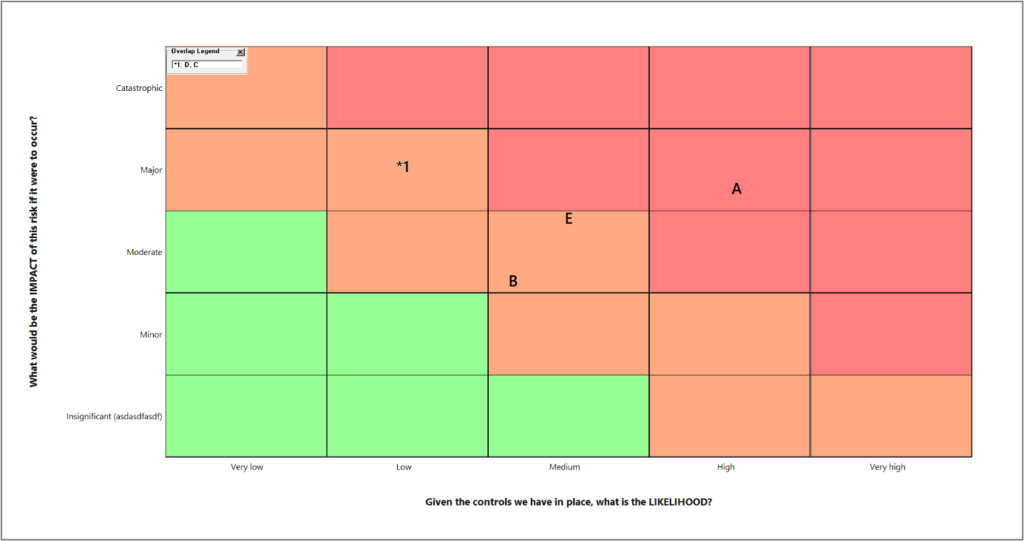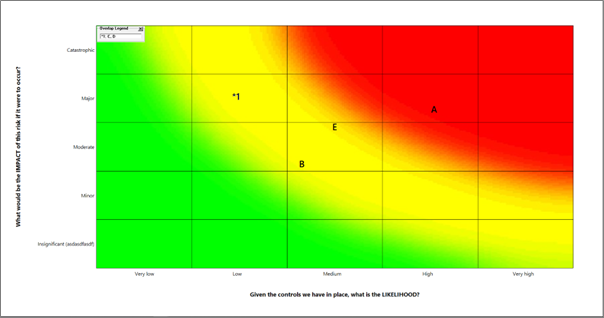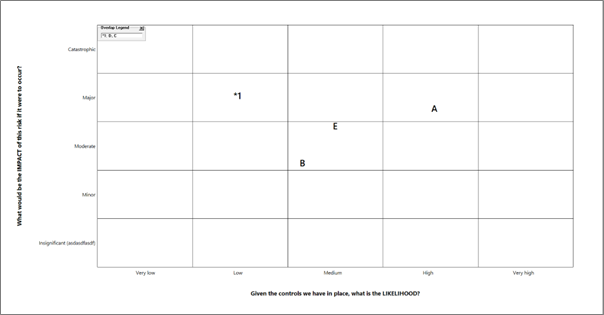Risk assessment workshops are an essential component of any successful risk management plan. According to a survey by Risk.net, over 90% of risk managers believe that risk workshops are an effective way to identify and assess risks. Risk assessment workshops involve bringing together several experts and other relevant stakeholders to identify, assess and prioritize potential risks associated with a specific project, operation or activity.
At the end of the process, participants need to have a clear idea of the likelihood and impact of identified risks and develop strategies to mitigate or manage them. Risk assessment workshops provide a structured framework for analyzing complex problems. As well as making informed decisions on how to deal with potential threats ahead of time.
If you want to learn more about risk management, this article is for you. In this article, we will discuss everything you need to know about risk assessment workshops, including their benefits, techniques and tools you need to carry out risk assessment workshops. Without any further ado, let’s jump right in!
What is a risk assessment workshop?
A risk assessment workshop refers to a structured process that brings together relevant stakeholders from various departments or teams. The aim is to identify potential risks, assess their likelihood and impact and develop feasible strategies to mitigate or manage those risks. Ultimately the main goal of risk assessment workshops is to identify the risks the different departments of organizations could face during their operations and how to mitigate them.
For the best results, it is important to involve all key stakeholders of these departments in the risk assessment process. During a risk assessment workshop, participants typically identify and evaluate different types of risks, such as operational risks, financial risks, strategic risks, legal and regulatory risks, or reputational risks, among others.
These workshops may also involve brainstorming, discussions, and using various tools and techniques to identify potential risks, prioritize them based on likelihood and impact, and develop a plan to manage or mitigate them. The outcome of any risk assessment workshop is a risk management plan that outlines strategies, controls, and procedures to minimize the negative impact of risks to ensure business continuity.
Benefits of risk assessment workshopsImproved risk awareness
Above all one of the primary reasons why risk assessment workshops are carried out is to ensure that different stakeholders are aware of the risks associated with their operations. Knowing the potential risks and how to deal with them reduces their impact on the operations of a department or the organization at large.
Proactive approach
Conducting risk assessment workshops also enable organizations to take a proactive approach to risk management by identifying and addressing risks before they can halt their operations.
Better decision-making
One of the core components of risk assessment workshops is generating a report with details of the likelihood and impact of different risks. The information in these reports provides a comprehensive understanding of the risks associated with different courses of action, therefore allowing the relevant stakeholders to make more informed decisions.
Prioritization
Generally one of the major challenges organizations face is determining what tasks or risks to prioritize at any given moment. Conducting a risk assessment workshop enables organizations to allocate resources and focus on the most critical tasks.
Stakeholder engagement
As mentioned earlier, risk assessment workshops bring together stakeholders from various departments or teams of the organization. Ultimately, this promotes collaboration and engagement across the different teams in an organization.
Continuous improvement
Most organizations do risk assessment workshops every year or after a couple of months. Having these workshops regularly ensures that risk management strategies remain relevant and effective over time. Subsequently, this leads to continuous improvement in operations in the different departments.
Techniques and tools used in risk assessment workshops
Some of the common techniques used in risk assessment workshops include the following;
Brainstorming: This is a technique that involves generating ideas or solutions from different members involved in a workshop. In a risk assessment workshop, you can use brainstorming to identify potential risks and their impact.
SWOT analysis: In risk assessment workshops, SWOT enables organizations to identify their strengths, weaknesses, opportunities, as well as threats. This technique can be used in a risk assessment workshop to identify potential risks and how they can impact an organization’s strengths and weaknesses.
Delphi method: This refers to a structured communication technique that uses a panel of experts to reach a consensus on a particular issue. In risk assessment workshops, this technique can be used to reach a consensus on the severity of potential risks.
The major tools used in risk assessment workshops include the following;
Risk matrix: A risk matrix can be used to evaluate and prioritize risks based on their likelihood and impact. In a risk assessment workshop, a risk matrix can be used to rank potential risks according to their severity. ppvote Matrix is CLiKAPAD’s in-house risk matrix tool that you can use to evaluate risks. With this tool, you can vote on each risk against a set of criteria, generate risk scores, and view the level of agreement using Scatter Graphs and average, standard deviation and diversity data.
Risk register: The risk register is a document that enables participants in a risk assessment workshop to record and track identified risks.
Final thoughts
In summary, a risk assessment workshop is an important tool for organizations to identify potential risks and develop measures to deal with them ahead of time. By bringing together a diverse group of stakeholders, without doubt these workshops enable a comprehensive analysis of risks from different perspectives and facilitate the creation of effective risk management plans.
For the best results, it is crucial to have clear objectives, a structured process, and skilled facilitators who can manage group dynamics and foster open communication. You should also use tools like CLiKAPAD’s ppvote matrix to quicken the entire risk assessment process. Overall, incorporating risk assessment workshops into your risk management approach enables organizations to proactively address potential risks and enhance their resilience in the face of uncertainty.





 No wifi needed
No wifi needed